SPOTLIGHT
Crumbling Eastern Cape mud clinics ‘far from ideal’, say frustrated residents
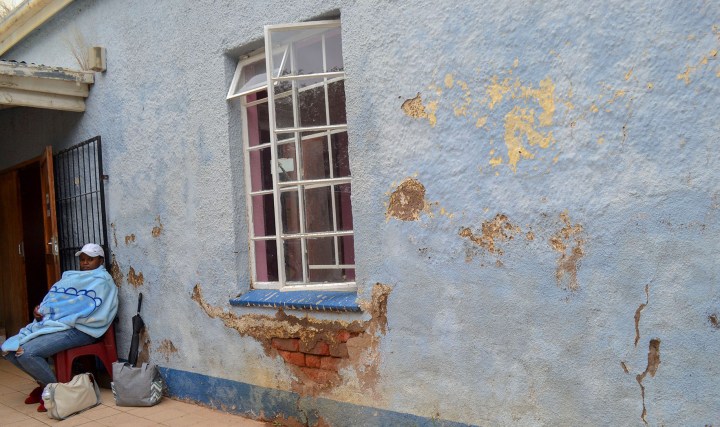
While Eastern Cape health authorities admit the continued use of mud clinics is a concern, rural residents still have to make do with these dilapidated facilities. Spotlight visited some of them to speak to residents, and asked the department about its plans to address the problem.
It is just another ordinary day at Philani Clinic in the Eastern Cape. Near the clinic entrance, a gogo is helped out of a taxi, breathing heavily and struggling to walk. She is taken inside the clinic in a wheelchair, while other people sit, waiting to be helped. They don’t seem to mind the camera and look uninterested when Spotlight approaches them. One says that photographers come and go and none, or their photos, have helped solve their problems with the clinic.
Dilapidated clinic ‘not ideal’
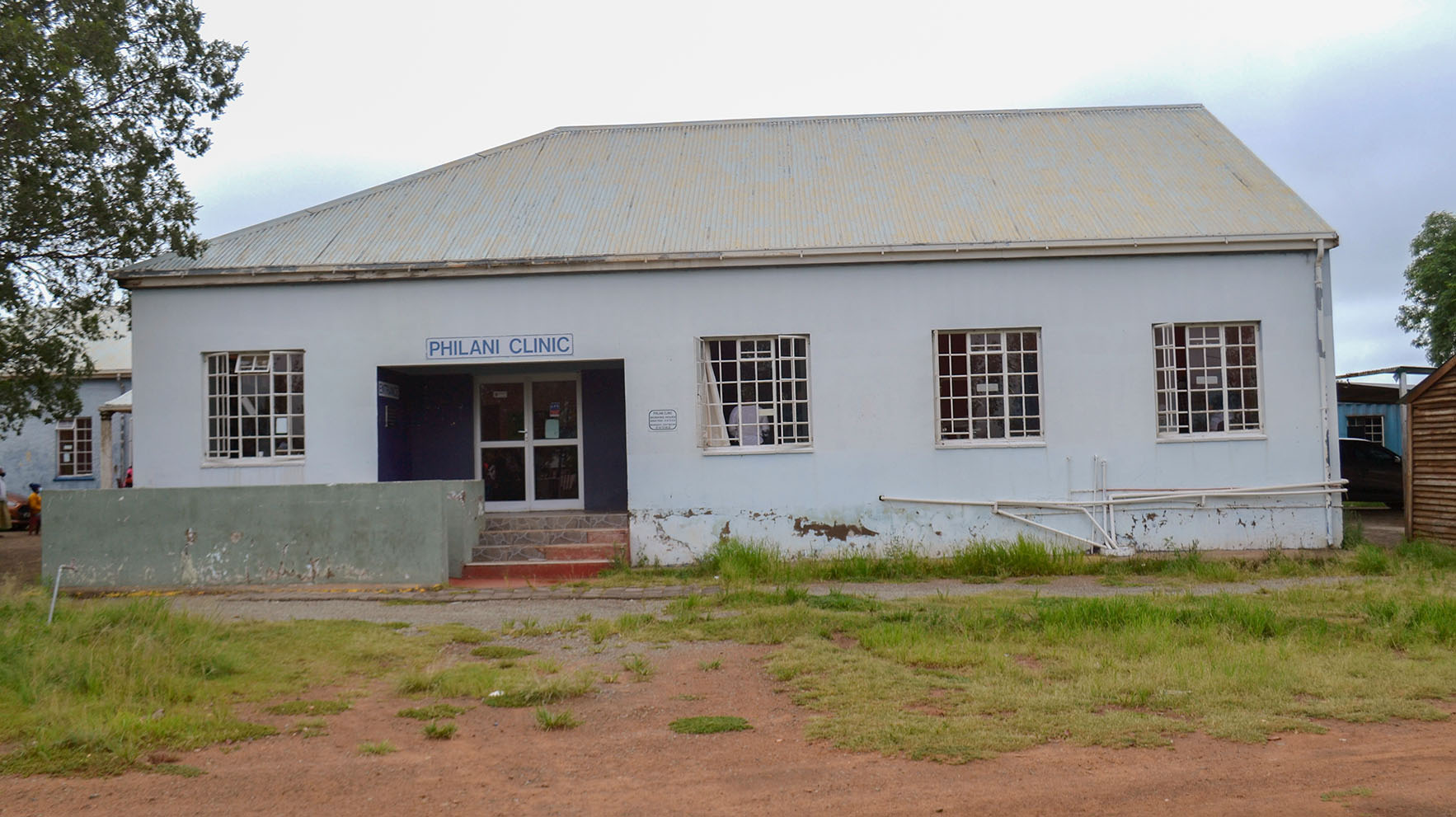
An entrance to Philani Clinic, Queenstown, Eastern Cape. (Photo: Luvuyo Mehlwana / Spotlight)
Philani Clinic in Komani near Queenstown was built by missionaries decades ago. Locals say the original structure has not changed except for an extension built in 1999. The original structure mainly comprises mud and brick, and is one of several such inappropriate and hazardous rural health facilities. They are found mostly in the Chris Hani, Alfred Nzo, OR Tambo, and Amathole districts.
Philani Clinic Committee chairperson Luyanda Nongemane tells Spotlight the clinic used to be a TB isolation hospital and was later converted into a clinic. In 1999, a small amenity consisting of a waiting area, dispensary, dentist room and administration area was built, but 90% of the structure is unchanged.
“The then health MEC, Sicelo Gqobana, during his term from 2010 to 2014, found the clinic to be unsafe for patients and staff. He suggested that the clinic need to be demolished and the new clinic built. We even identified the site for a new clinic, but nothing has happened. The government is dragging its feet to respond to our cries,” says Nongemane.
What concerned residents the most was how small the clinic was, and its dilapidated state. “This old structure was announced as an Ideal Clinic, funny enough. It is not even qualified to be a community health centre. This is not a 24-hour clinic. There is no X-ray [equipment] and maternity ward. People who need those services need to go to Frontier Provincial Hospital, but we have an Ideal Clinic according to our government.”
According to the Ideal Clinic Definition and Components booklet of 2015, an Ideal Clinic is defined as a clinic with good infrastructure, adequate staff, adequate medicine and supplies, good administrative processes, and sufficient adequate bulk supplies, among other things. Ideal Clinic status will be a prerequisite for facilities to register as service providers in the proposed National Health Insurance system.
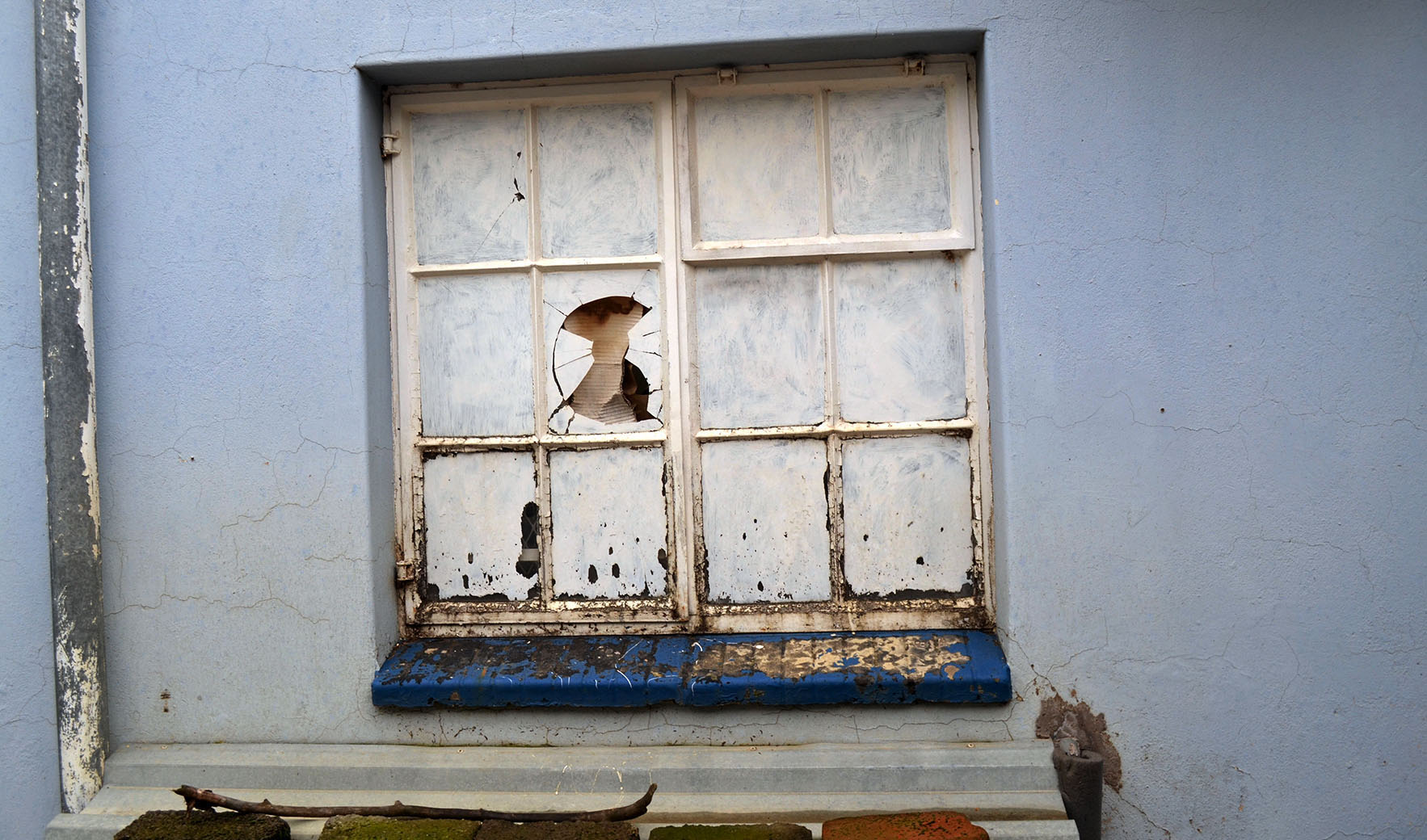
Broken windows at Komani Clinic, Eastern Cape. (Photo: Luvuyo Mehlwana / Spotlight)
In her 2021/22 budget speech, Eastern Cape health MEC Nomakhosazana Meth said that by the end of the third quarter of 2020/21, “the current cumulative number of clinics that achieved Ideal Clinic status since the start of the Ideal Clinic programme in 2015, is 48% (370 facilities)”.
‘Urgent attention’
One visitor to Philani Clinic, Achuma Witbooi, says the clinic needs urgent attention.
“In fact, we need a new building because this structure cannot be refurbished. There are cracks all over the consultation rooms and people who are visiting this clinic are forced to wait outside until it’s the
ir turn to be served.” This had been the case since before Covid-19.
“The most concerning thing is the long grass that is not maintained. We are on high alert as we fear the snakes. We don’t have anything else besides this clinic that is offering limited services. We were once promised several years ago that the clinic would be upgraded and would operate 24 hours a day since we don’t have anywhere to go at night.”
When Spotlight visited, people were greeted by cracked walls, peeling paint and long grass. Nongemane says they receive many complaints when it rains, as water seeps through the cracks and causes damp.
According to structural engineer Mahlatse Nkgoeng, these mud structures were expected to last a lifetime. “They don’t. It is not meant to last a lifetime without proper maintenance and strengthening of the structures, so it is inevitable that it will fall apart.” However, there were benefits to this construction method provided safety regulations were in place. “It is environmentally friendly, the materials are readily available and it is a great way of building if it is maintained properly.”
Grateful, but praying
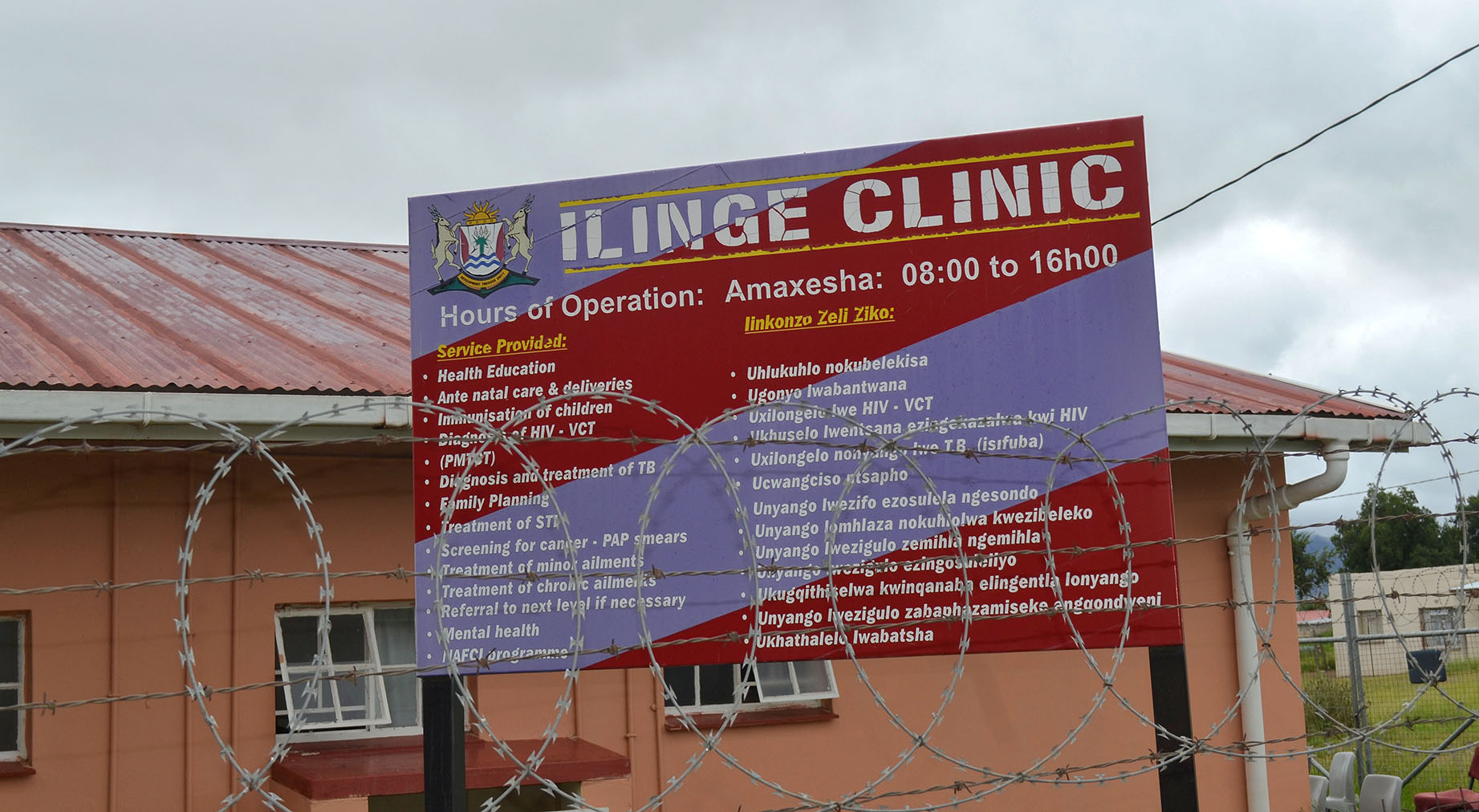
Ilinge Clinic, Eastern Cape. (Photo: Luvuyo Mehlwana / Spotlight)
For some residents of Illinge in the same district, however, their clinic is “a blessing from God” and despite similar challenges, they say it’s their only hope.
Nontobeko Buthelezi (74), a regular at Illinge Clinic, says: “This clinic is our only hope and has withstood the test of time, but it is high time that the government intervened. It looks beautiful outside, but inside there are structural challenges such as cracks, and it is very small. It is concerning because we don’t see officials from the department bothering to come and address our basic needs. This place is depressing. I believe proper healthcare should be complemented by [a] proper premises that are regularly maintained.
“Yes, we have a clinic and we appreciate it, but it is high time it gets some intervention. Nurses are doing their best to give us the best treatment, but our main concern is the size and standard of our clinic. We are always praying that a storm must not hit our village, otherwise we will be left with nothing.”
Previous promises
During a press briefing in August 2020, Eastern Cape Premier Oscar Mabuyane acknowledged the poor conditions at some healthcare facilities in the province.
In her 2020/21 budget speech, former health MEC Sindiswa Gomba vowed that mud clinics would become a thing of the past in Chris Hani District, where the Philani and Illinge clinics are located.
She promised that the provincial health department would deliver on the planned infrastructure projects in the 2020 Medium-Term Expenditure Framework (MTEF). While she acknowledged that dilapidated health facilities were a concern, she said refurbishment would not happen overnight.
However, Meth said in her 2021/22 budget speech that due to limited financial resources, the focus would be on maintaining infrastructure rather than taking on new building projects.
Infrastructure projects under way
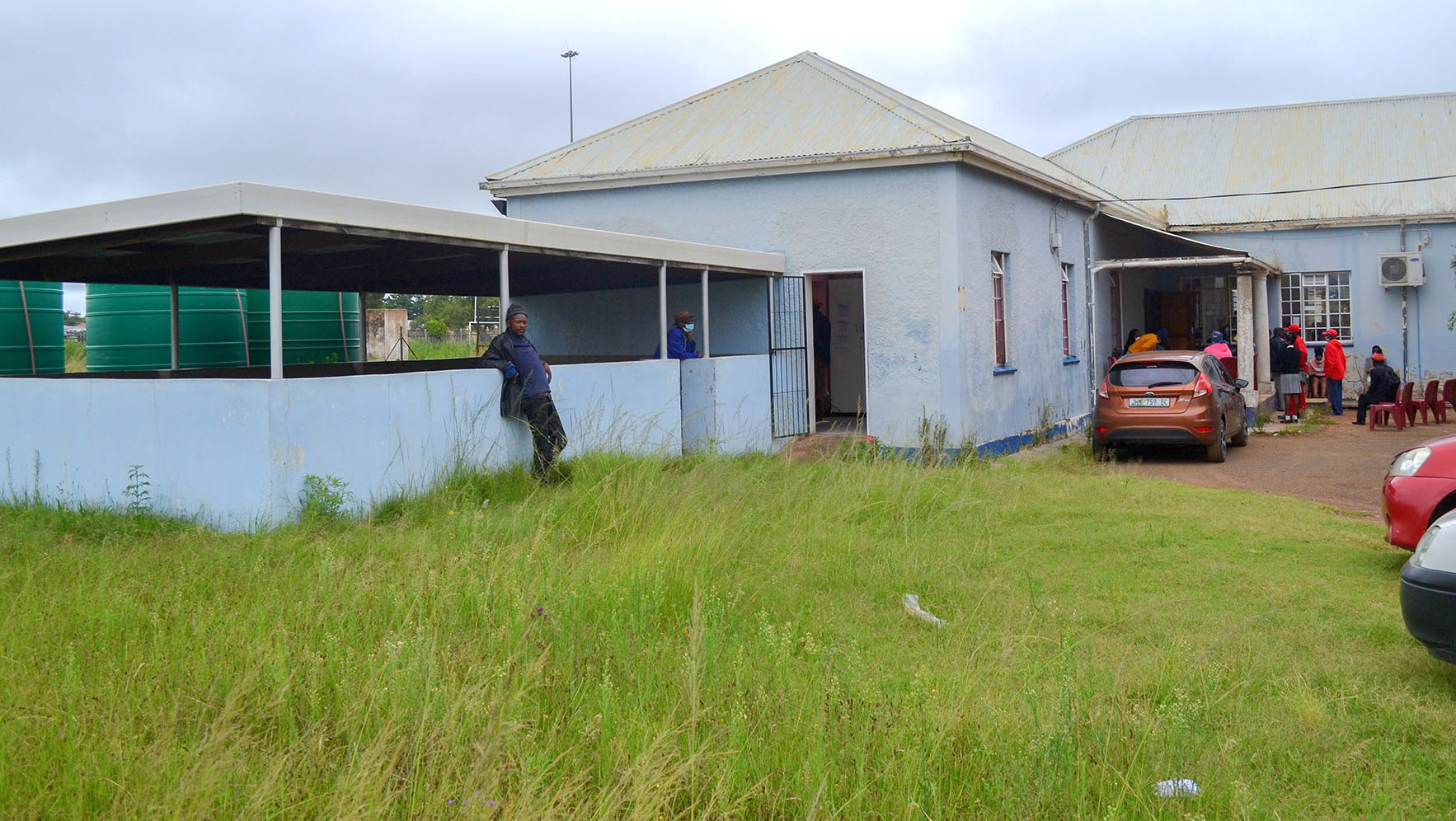
Part of the exterior of Komani Clinic, Eastern Cape. (Photo: Luvuyo Mehlwana / Spotlight)
When Spotlight put these concerns to acting provincial health spokesperson Yonela Dekeda, she said the department assessed its infrastructure across the province and identified six facilities built with elements of mud. “These facilities have been included in the three-year infrastructure plan [and] include Tsomo Clinic (OR Tambo District), Illinge Clinic, Lower Didimane Clinic, Philani Clinic, Molteno Town Clinic (Chris Hani District) and Balfour Clinic (Amathole District).”
The Illinge and Philani clinics were among 60 community health facilities and clinics earmarked for replacements, renovations, refurbishments, alterations and additions over the MTEF. These “major alterations and additions” followed the Ideal Clinic guidelines and would begin in the 2023/24 financial year.
Asked why it had taken so long before the problems were addressed, Dekeda said: “The department inherited an aged infrastructure, some of which had been initially built as churches or schools and not meeting the correct health standards and building regulations. This has created a heavy infrastructure backlog of R25-billion over the 10 years. These facilities also form part of seven hospitals, including Nessie Knight Hospital, [which] the department identified and included in the Infrastructure Improvements Plans over the MTEF.”
Dekeda said R1.4-billion had been budgeted for infrastructural improvement, including building new assets, maintenance and health technology.
As for cutting the grass, “the budget for maintenance is decentralised to the eight health districts, and the management, together with their supply chain management units, are responsible for employing service providers to cut grass”.
‘Daydreaming’
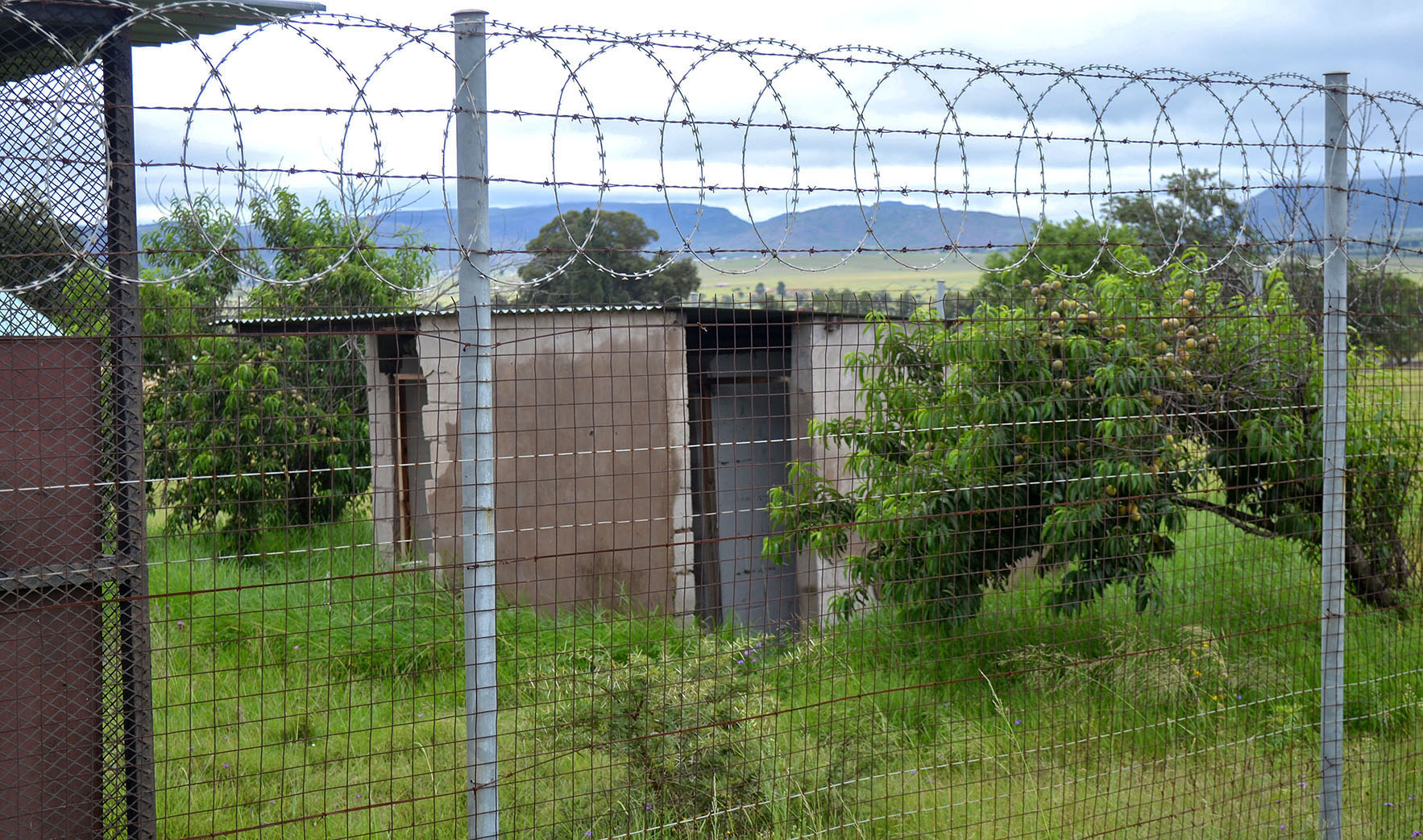
Dilapidated outbuildings with long grass at Komani Clinic, Eastern Cape. (Photo: Luvuyo Mehlwana / Spotlight)
Meanwhile, the DA in the Eastern Cape says the health department is daydreaming when it says it will replace some mud clinics.
Provincial legislature member Jane Cowley says the fact that there are still mud clinics “is indicative of a department that is out of touch with the reality of people’s experience in the rural areas”.
“The fact that there are still mud clinics is an absolute travesty because you can see clearly that the infrastructure budget has been poorly managed. There are so many clinics that could have been built with the infrastructure budget.”
Cowley says infrastructure development has no place in the health department, but should be under public works.
“The department of public works did a far better job than the department of health in building Covid-19 units during the first and second waves. The 10-year user asset management plan by the department is a dream that won’t happen based on its financial situation.
“The department has already spent R5-billion of what they are going to get on 1 April (the beginning of the new financial year), so how are they going to allocate money for the building? The department needs a huge spring-clean that goes as far as including the Special Investigating Unit to investigate exactly what is going on in infrastructure programmes in the department.” DM/MC
This article was published by Spotlight – health journalism in the public interest.

[hearken id=”daily-maverick/9264″]





















 Become an Insider
Become an Insider
Comments - Please login in order to comment.